After increasing capacity and improving conditions at Abiy Adi Hospital in the Tigray region of Ethiopia, Doctors Without Borders/Médecins Sans Frontières (MSF) concluded activities at the facility this month. MSF will now focus on assessing and supporting health facilities in other areas in the country where needs may be greater.
“We started by supporting the emergency department, then pediatrics, then neonatal intensive care and maternity,” said Mulugeta Abreha, MSF nursing team supervisor. “This was at a time when the hospital didn't even have gloves, and many people were dying due to lack of medical equipment.”
The impact of war on health care access in Tigray
The town of Abyi Adi is a large population center in the middle of Tigray, a region in Ethiopia that has experienced war in recent years. The two-year Tigray conflict—characterized by extreme violence, widespread looting, and massive displacement—resulted in the near-total collapse of the health care system. Health facilities lacked medical supplies, biomedical equipment, and health workers, and what health workers were available were often unpaid. The Abiy Adi General Hospital was left barely functional.
“We started providing health services in Abiy Adi district through mobile outreach clinics for the first time in March 2023,” said Abreha. “In April, we began supporting the hospital, which at the time was experiencing a high number of mass casualties that it could not handle. The hospital had only one doctor, and other staff were working without pay.”
Supporting a weakened health system
From March 2023 until July 2024, Doctors Without Borders rehabilitated several key departments in Abiy Adi General Hospital: the emergency room, which received 15,424 patients until end of June 2024; the neonatal intensive care unit, which treated 896 newborns in that time; the pediatrics department and inpatient therapeutic feeding center, where 1,280 children were treated; and the maternity department, in which 4,864 consultations were held between March 2023 and July 2024. This year, the facility’s laundry room, waste zone, and surgical and medical wards were also rehabilitated, and biomedical equipment was donated.
MSF health promotion officer
Elias Addis
"In a small village nestled in the highlands of Abiy Adi, a young mother named Letay had just given birth to a beautiful baby boy she named Hagos. Like many families in Letay's village, tradition and cultural practices run deep. Among these customs, there is a belief in traditional uvulectomy [removing the soft tissue above the back of the tongue], a harmful practice performed on newborns ...
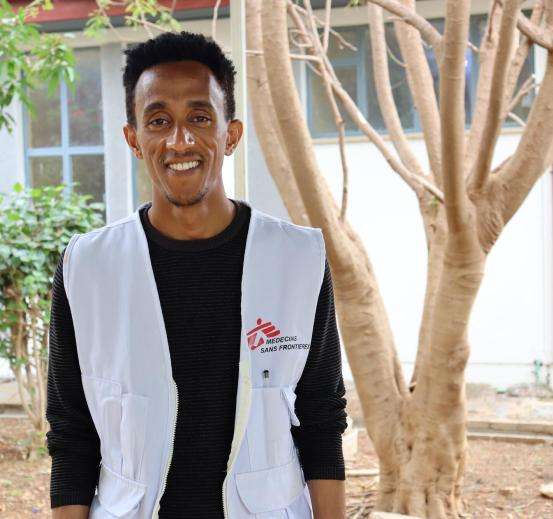
MSF also rehabilitated two maternity wards in Gororo and Arena Health Centers last year, and provided primary health care services in six health centers in rural areas around Abiy Adi including more than 32,000 outpatient consultations. Nutritional outreach activities were also carried out to provide basic medical care for children under five years old who have malnutrition.
In addition to bolstering health care, MSF teams supported displaced people living in four overcrowded camps where conditions were poor. Our teams provided mental health care, psychosocial support sessions, and health promotion activities, focusing on malaria prevention, breastfeeding, and personal hygiene.
Meeting basic needs to improve mental health
The war in Tigray has had a significant impact on people’s mental health. “There are about three attempted suicide cases in the emergency room per week now,” said Birhan Seyhoum, MSF mental health supervisor in Abiy Adi. “They suffer because they had to flee their homes, because of lack of food, [and] because many family members are missing.”
Seyhoum said that when he started working in the camps for displaced people, they didn’t even have water. “This is a post-war society. We can’t start working deeply on mental health if we don’t have the basics to survive like water and food. We did some advocacy work to get access to water in Lisanu camp, [and] when we finally achieved [this], people started talking to me during my sessions.”
Seyhoum also provides mental health sessions for staff from the Ministry of Health as well as MSF colleagues working at the hospital. His goal is to increase motivation among the hospital’s staff, to remind them about the importance of including mental health in everyday health care and ensuring continuity of care after MSF leaves the hospital. “We use the term positive infection in the mental health department. In our sessions in the hospital, we discuss how to make positive ideas viral with doctors, nurses, paramedics—and also with housekeepers, watchmen, and logistics staff, because a doctor alone can’t achieve what we, all together, can achieve.”
“I feel privileged to be able to save lives,” said Seyhoum, “but I worry about what will happen in the community, [as] mental health will become a burning issue.”
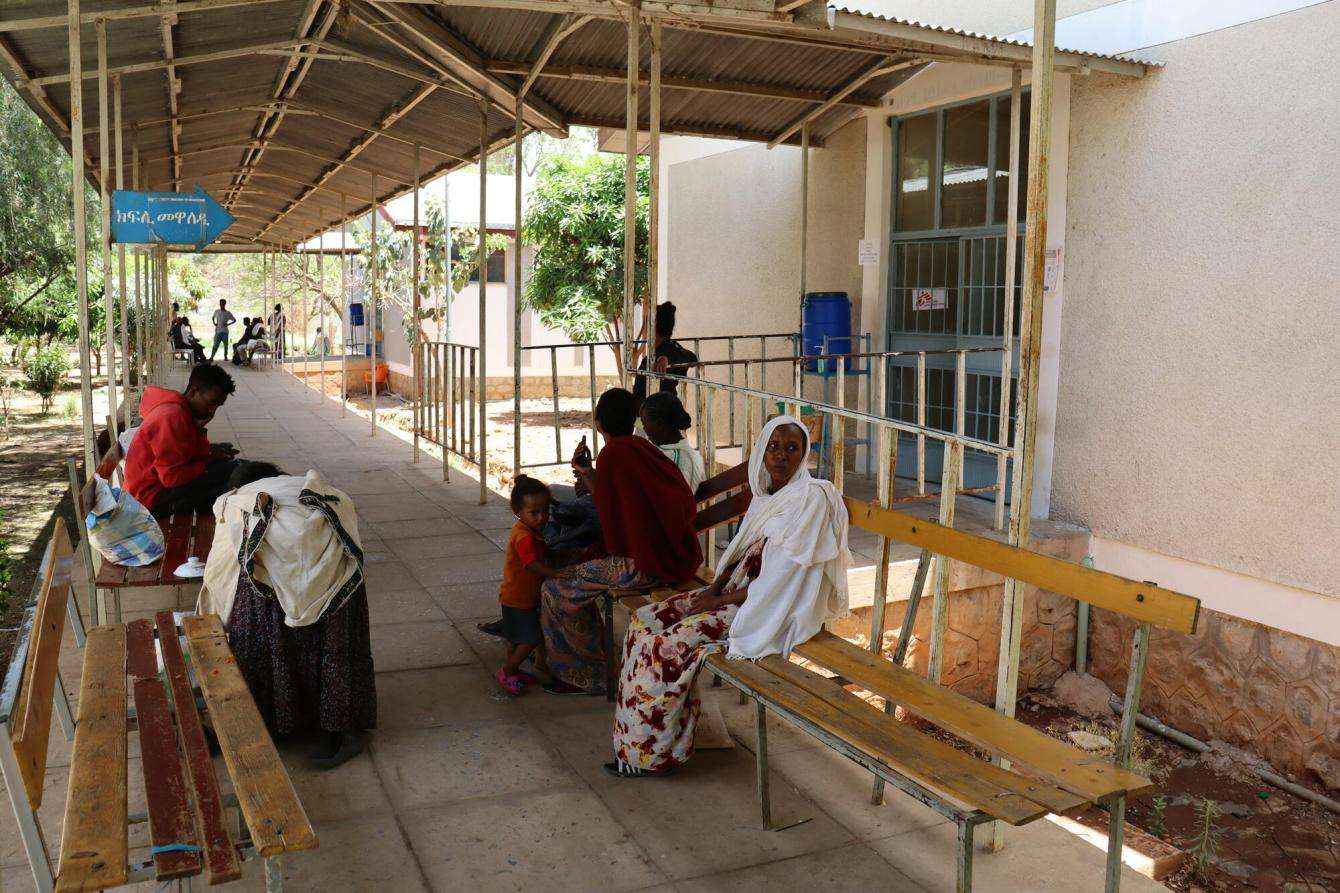
Donating blood to save lives
A series of blood donation campaigns was implemented in collaboration with Axum Blood Bank, running once a month from May 2023 to June 2024.
Tigray, like most of Ethiopia, is experiencing a shortage in blood reserves caused by diverse and interlinked factors. Up to 50 percent of blood is collected in schools and colleges, however in conflict-affected areas, schools are closed--reducing the main source of blood collection. In leaving health care facilities barely functional, the conflict in Tigray and other regions of Ethiopia has made the collection, processing, and distribution of blood more difficult.
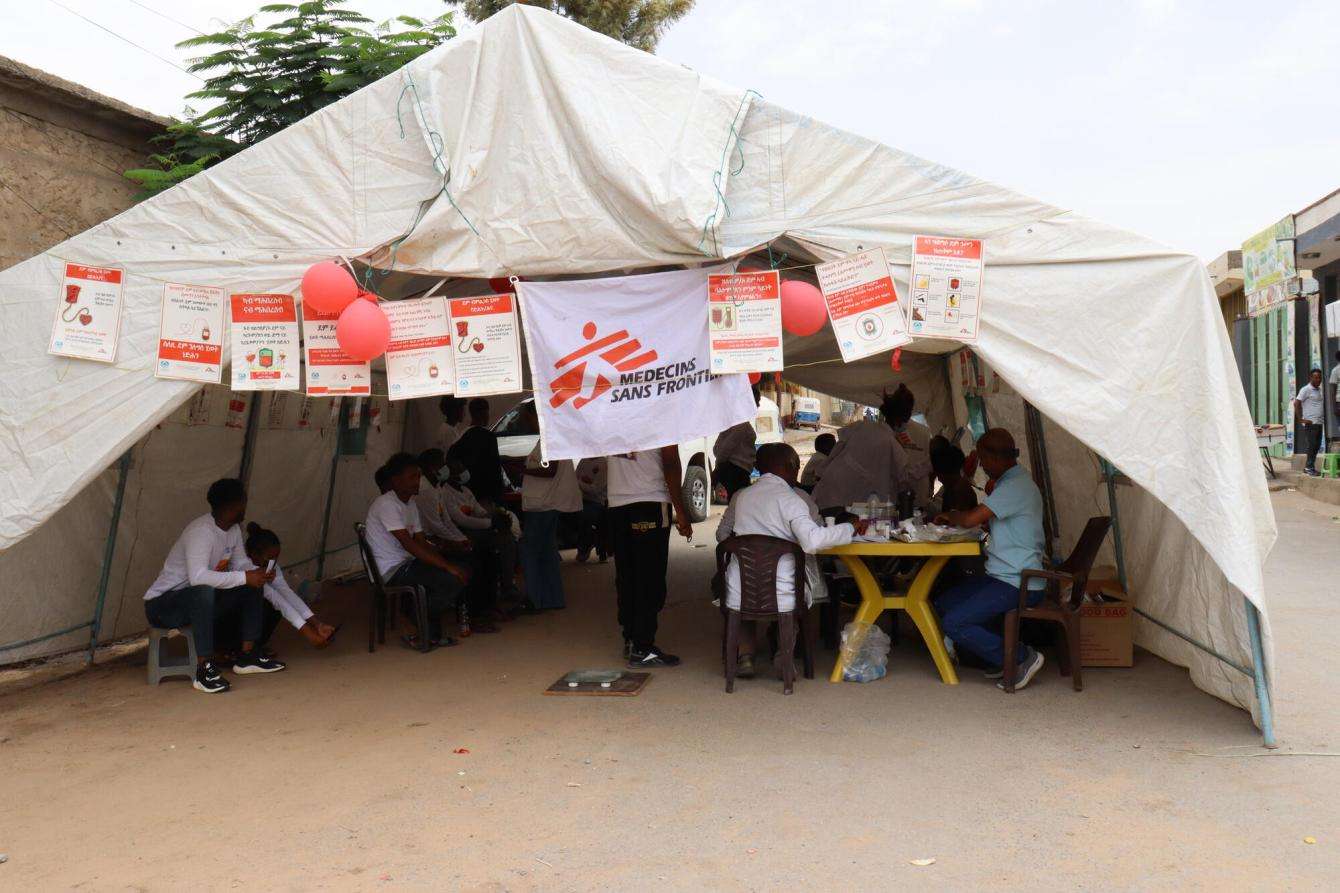
At the same time, due to the insecurity and destruction of health facilities, women who are about to give birth often arrive at hospitals late, increasing the likelihood of complications that require blood transfusions.
Another factor contributing to the exhaustion of blood reserves and the high demands the unprecedented rate of malaria, since anemia is one of the main complications of the disease. Between January and June 2024, over 3 million people contracted malaria throughout the country—nearly reaching the total number of infections during the whole of 2023, according to the Ethiopian Health Cluster.
To raise awareness and increase participation in blood donation, MSF set up a storytelling school club with youth and community leaders in Abiy Adi. Sharing positive experiences through storytelling helped to break the stigma and taboos about blood donation, encouraging people to participate in the campaign. These joint efforts mobilized people to donate 517 units of blood, saving more than 500 lives.
MSF health promotion officer
Teka
"One day, Alem slept through the day. His father and mother asked him about his health, and he told them that he was not feeling good. He had headaches, joint pains and shivering, and he didn’t have any appetite. His parents gave him herbal medication for one week, but his illness became worse from day to day. His nose started bleeding, he was talking to himself, and he became confused ....
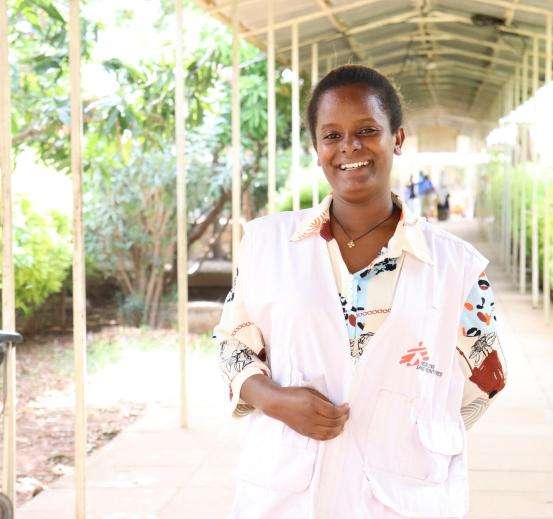
“We're very happy to see Abiy Adi General Hospital recover over the past 17 months, to the point where patients are able to access most services here again,” said Prue Coakley, MSF deputy head of mission in Ethiopia. “[While] we’ve been working alongside the Ministry of Health in the hospital, we’ve also been able to implement activities specifically designed for this context within the community--such as mental health sessions in camps for internally displaced persons and blood donation campaigns, in addition to capacity building for Ministry of Health staff.” “We hope to see all the activities we’ve been supporting continue and further evolve to meet the needs of people in Abiy Adi and Tigray more generally,” Coakley added.
Our work in Ethiopia
MSF continues to work in many parts of Ethiopia, including Tigray, Afar, Oromia, Amhara, Gambella, South Ethiopia, and Somali region, and we continue to adapt our activities to changing needs in different parts of the country and to respond to emergencies such as disease outbreaks.
MSF first was present in Abiy Adi at beginning of the war in northern Ethiopia, until the tragic incident of June 24, 2021, in which our colleagues Tedros Gebremariam Gebremichael, María Hernández Matas, and Yohannes Halefom Reda were brutally murdered. In March 2023 MSF returned to Abiy Adi to support the rehabilitation of Tigray’s health care system which was deeply disrupted by the conflict.
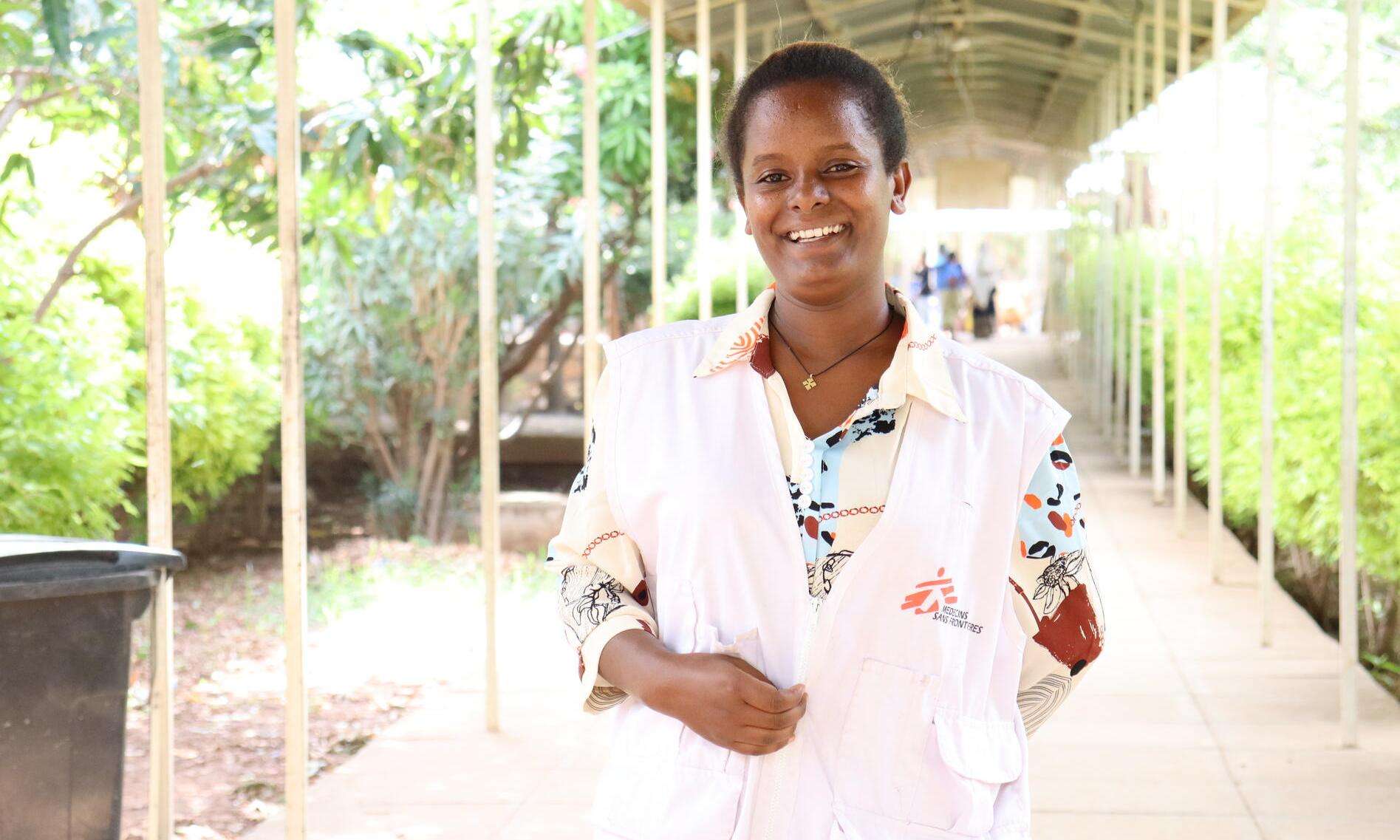
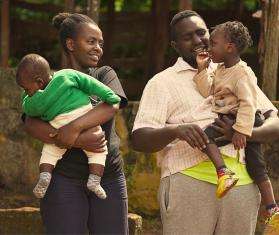
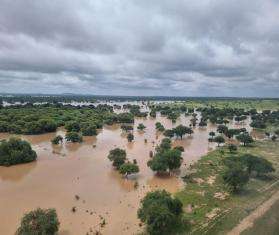
0b23.png)
